Hematology & Medical Oncology Fellowship
The Northwestern University Hematology & Medical Oncology Fellowship program trains and mentors academic leaders in medical oncology and hematology. Seven fellows are selected annually and receive three-year stipends. The purpose of the fellowship program is to expose fellows to the clinical practice of hematology and oncology and includes patient care. The program is education-oriented and leads to board eligibility in Medical Oncology and Hematology.
About the Fellowship
Program Director Message
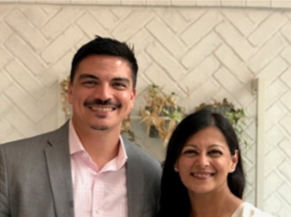
Thank you for your interest in the Hematology & Medical Oncology Fellowship program at the McGaw Medical Center of Northwestern University.
The overarching goal of our program is to train competent, caring, skilled physicians specializing in the field of Hematology Oncology. Our program provides in-depth exposures to all areas of hematology/oncology with outstanding fellowship-trained faculty in all subspecialty areas. We strive to create a supportive environment in which professionalism, ethical principles, and teamwork is a focus of training. We aim to provide a training environment in which fellows feel supported as they learn hematology oncology. In addition to the common curricular elements required of all fellows, fellows can choose to work in a basic science laboratory, develop skills in clinical and translational research, develop teaching skills required to be a physician educator, or train in quality improvements methods. Other opportunities are also available based on interests, as we realize the field is evolving and incorporating more diverse research activities.
The fellowship program at Northwestern is integrated between the Northwestern Memorial Hospital/Prentice Women’s Hospital on the Feinberg School of Medicine’s Chicago Campus, the Jesse Brown VA Hospital, as well as the Robert H. Lurie Cancer Center of Northwestern University. Each site provides a unique experience - with different patient populations and a diverse exposure to different, and often rare, oncologic diagnoses. Our outpatient clinical cancer center in Northwestern Medicine’s Galter Pavilion offers leading-edge medical, surgical, and radiation oncology treatment options, as well as access to cutting-edge specialized research, clinical trials, and diagnostic services. During the training years, fellows have the opportunity for greater responsibility and autonomy as their level of competence, clinical skills, and knowledge increase.
We recognize the importance of self-care needs of health professionals, and during these current stressful times, your health and well-being are a major focus of both of us, the faculty, and McGaw.
From the first year of your fellowship program, we will foster an environment so that you are able to identify faculty mentor(s) who will meet with you regularly to evaluate your experience and well-being. In addition, we the Program Director and Associate Program Director of the Fellowship program meet one-on-one with our fellows on a semi-annual basis, and have monthly fellows' meetings for their feedback, as well as a check-in on their well-being.
Finally, and most importantly, Northwestern University and the Department of Medicine are committed to building a diverse faculty, workforce, trainee, and student community.
We strive to create an environment of inclusions for all, and trainees participate in several awareness and educational programs throughout the academic year.
At Northwestern, we offer a unique fellowship training program, an individualized curriculum, and a friendly and supportive environment in which fellows can learn and thrive.
Sunandana Chandra, MD, MS, Fellowship Director
Jonathan Moreira, MD, Associate Fellowship Director
Education
The Hematology & Medical Oncology Fellowship offers comprehensive training in all areas of the field, preparing fellows for careers in academic medicine. Fellows gain hands-on experience through rotations at Northwestern Memorial Hospital and Jesse Brown VA Medical Center, guided by Feinberg School of Medicine faculty mentors. The program also provides a variety of educational activities.
Hematopathology Conference
This weekly, CME-accredited conference features a fellow presenting interesting malignant or benign hematology cases. Faculty participate and board review questions relevant to the cases are discussed.
New Patient Conference
Held biweekly, this conference covers solid tumor oncology cases. Fellows present cases with disease-specific faculty, focusing on standard evaluations and treatments.
Didactics
Faculty deliver three to four lectures per month on key disease topics and active research areas in hematology and oncology.
Journal Club
Every other week, a fellow critically reviews two recent high-impact publications, joined by a faculty discussant.
Tumor Boards
Fellows can attend or present at more than 10 tumor boards, including a molecular tumor board, held weekly or biweekly at Northwestern.
Hematology/Oncology Grand Rounds
The Robert H. Lurie Comprehensive Cancer Center of Northwestern University hosts expert speakers from Northwestern and other academic institutions. Fellows present 30-minute Grand Rounds during their second or third year to showcase their research.
Board Review
Before ASCO and ASH exams and fellowship graduation, fellows practice board review questions or watch review videos in formal and informal sessions.
Morbidity & Mortality (M&M)/Adverse Event Analysis
Fellows lead quarterly M&M conferences to analyze adverse events in hematology and oncology cases.
Research
Each trainee will have an annual stipend and design a research curriculum with the guidance of a mentor and a faculty advisory committee. In the first year of the Hematology & Medical Oncology Fellowship program, trainees will be exposed to various faculty mentors in the fields of clinical research, health outcomes research and basic cancer research and will select a mentor. Trainees can choose from two research tracks: Clinical Research and Basic Research.
Clinical Research focuses primarily on guiding the trainee in identifying the critical clinical questions affecting patients, advising the trainee on the logistical issues involved in trial design, drug procurement and procedures and policies of the institutional review board and other regulatory agencies needed to actualize a clinical trial. Research focuses on basic cancer research and requires the completion of a laboratory research project and the publishing and presentation of results.
Clinical Experience
During the 18 to 24 months of clinical training, Hematology & Medical Oncology fellows rotate through seven major clinical services.
Northwestern Memorial Hospital
Malignant Hematology Service (Inpatient)
Fellows spend two to three months in their first year managing acute leukemia, aggressive lymphomas and other malignant hematologic diseases. They round with attendings, coordinate with outpatient leukemia and lymphoma faculty, perform bone marrow biopsies and write chemotherapy orders. Internal medicine residents manage notes and basic orders.
Benign Hematology Consult Service (Inpatient)
Over three years, fellows rotate for three to four months on this service, working with attendings to manage cases including thrombocytopenia, thrombosis, coagulopathies and hemophilias. Internal medicine residents often join this rotation.
Oncology Consult Service (Inpatient)
Fellows spend two to three months across the fellowship on this service, managing new cancer diagnoses, transfers of care, second opinions and complications of cancer or treatment with an inpatient oncology attending.
Inpatient Stem Cell Transplant Service (Inpatient)
During their first year, fellows complete a one-month rotation, often following malignant hematology to maintain continuity of care. They manage four patients, writing notes and placing orders, with support from attendings and nurse practitioners. Fellows gain experience with both allogeneic and autologous transplants. Northwestern performs over 350 transplants annually.
Solid Tumor Oncology Rotation (Outpatient)
In this one-month rotation, fellows attend five outpatient clinics weekly in core areas such as GI oncology, breast cancer, thoracic oncology and GU oncology, along with their two continuity clinics.
Palliative Care Service (Inpatient)
First-year fellows rotate for one month, focusing on symptom management, pain control and practicing communication strategies, such as breaking bad news and discussing goals of care with guidance from palliative medicine faculty.
Jesse Brown VA Medical Center
Inpatient Hematology & Oncology Consult Service
First-year fellows rotate two to three months on this consult service, collaborating with fellows from the University of Illinois Chicago. They manage new cancer diagnoses, chemotherapy admissions and benign hematologic cases and attend outpatient clinics twice weekly for consults.
Continuity Clinics & Electives
Fellows maintain two outpatient continuity clinics at the Robert H. Lurie Comprehensive Cancer Center of Northwestern University. In their second or third year, they may add a VA continuity clinic for increased autonomy. Electives include rotations in Hematopathology, Transfusion Medicine, Radiation Oncology or additional time in Stem Cell Transplant.
Comprehensive Clinical Preparation
This structured clinical training exposes fellows to a wide range of hematologic and oncologic diseases, preparing them for in-depth, mentored research experiences in clinical or basic/translational investigation.
Application Process
Positions
Seven positions are available on a competitive basis each year in the Northwestern University Hematology and Medical Oncology Fellowship program.
Qualifications
At this time, only residents who are in an ACGME accredited residency program in a US hospital are considered. If not a permanent US resident, individuals must already have an appropriate VISA that will permit a three-year stay for training (usually a "J" VISA). Appointment is contingent with receipt of a valid Illinois Permanent License.
How to Apply
Applications to the Northwestern Hematology and Medical Oncology Fellowship are accepted exclusively through the Electronic Residency Application Service (ERAS). To apply, please visit the ERAS website and follow the directions for Fellowship Applicants. Applications and related documents submitted without the use of ERAS will not be considered.
Applications must have the following information:
- Completed application form.
- Three letters of recommendation and one letter from Residency Program Director.
- Curriculum vitae.
- Personal statement about your interest in the Hematology and Medical Oncology Fellowship as well as your future plans.
- Transcript from medical school and USMLE scores, ECFMG if foreign.
- Illinois license, if applicable.
- Copy of visa, if applicable.
Application Deadlines
Completed applications are due in ERAS no later than August 1, 2025
Invitations to interview will be sent mid to late August.
Interviews are tentatively scheduled to take place on the following dates. All interviews will be conducted virtually.
- August 22, 2025
- August 25, 2025
- September 8, 2025
- September 15, 2025
- September 26, 2025
- September 29, 2025
- October 10, 2025
- October 13, 2025
Frequently Asked Questions
Does your program accept trainees for away rotations or observerships?
No, the Hematology and Medical Oncology Fellowship at Northwestern University does not accept trainees for away rotations or observerships.
I am interested in learning more about your program, can I set up a meeting with the Program Director?
To maintain equity for all applicants, our Program Director does not meet with applicants outside of a formal interview invitation.
How will your program utilize signaling for this recruitment season?
While we preferentially may consider applications from those who signal our program, we also will consider applicants who do not signal us.
Will there be an opportunity to meet with current fellows in the program?
Yes, candidates invited to interview are welcome to attend a virtual open house to meet with our current fellows, ask questions and learn more about the program. Open houses will be held in mid-late October in the evenings.
Alumni Testimonials
Full Name:
Lauren Chiec, MD (2022)
Position:
Assistant Professor of Medicine, Case Western Reserve University School of Medicine
"My time as a fellow in the McGaw Medical Center of Northwestern University's Hematology and Oncology Fellowship Program provided a well-rounded training experience, with opportunities to participate in clinical research and care for patients ina variety of settings. After learning from incredible mentors alongside supportive colleagues, I feel prepared for an academic career in thoracic oncology, and feel confident in my ability to provide high-quality care to my future patients and their familites."
Full Name:
Andrew A. Davis, MD (2020)
Position:
Assistant Professor, Washington University in St. Louis
"The combination of outstanding clinical training and research opportunities has set me up for a career as a clinical investigator with a focus on biomarker development and clinical trails aimed at improving patient outcomes."
Full Name:
Ari Rosenberg, MD (2019)
Position:
Assistant Professor of Medicine, University of Chicago
"The McGaw Hematology & Meicial Oncology Fellowship program has served as a launching pad towards a career as a clinical researcher in academic oncology. The guidance of both clinical and research mentors facilitate the development of strong independent clinical decision-making in both medical oncology and hematology, and provide guidance in the execution of research projects in the fellowships area of interest. I am grateful for the excellent clinical and research training provided by the McGaw Hematology/Oncology Fellowship program."
Full Name:
Wade T. Iams, MD (2018)
Position:
Assistant Professor of Medicine (Thoracic Medical Oncology), Vanderbilt University Medical Center
"McGaw Medical Center of Northwestern University's Hematology & Medical Oncology Fellowship program trained me well in the rapidly evolving field of cancer care. I was able to participate in, learn, and apply practice changing research on a regular basis, and this has positioned me for success in academic medicine in medical oncology."
Meet Our Fellows
First Year

Clare Anderson, MD
MD: University of Michigan
Residency: Duke University School of Medicine
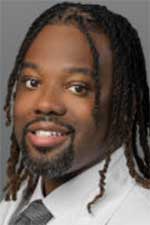
Jordan Atkins, MD, MPH
MD: Washington University in St. Louis School of Medicine
Residency: Barnes Jewish Hospital/Washington University

Haidn Foster, MD, MA
MD: University of Cincinnati College of Medicine
Residency: Penn State Health

Natalie Heater, MD
MD: Loyola University Stritch School of Medicine
Residency: Northwestern University
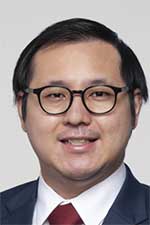
Ben Ponvilawan, MD
MD: Siriraj Hospital Faculty of Medicine (Bangkok, Thailand)
Residency: University of Missouri – Kansas City

Margaret Stalker, MD
MD: University of Colorado School of Medicine
Residency: Hospital of the University of Pennsylvania
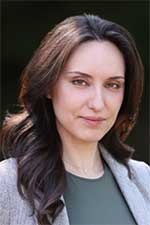
Viktoriya Zelikson, MD
MD: Virginia Commonwealth University School of Medicine
Residency: University of Virginia
Second Year

Moiez Ali, MD, PhD, MS
MD/PhD: Duke University School of Medicine
Residency: University of Pennsylvania
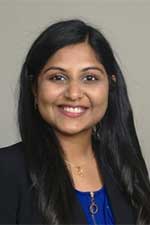
Pranavi Sanka Bavishi, MD
MD: University of North Carolina at Chapel Hill School of Medicine
Residency: The Warren Alpert Medical School of Brown University
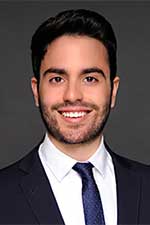
Nadeem Bilani, MD
MD: American University of Beirut Faculty of Medicine, Lebanon
Residency: Icahn School of Medicine at Mount Sinai Morningside-West
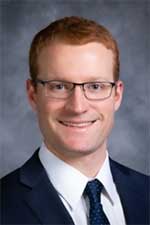
Jeffrey Fuchs, MD
MD: Northwestern University
Residency: Northwestern University
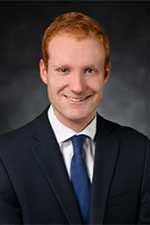
Joseph Fuchs, MD
MD: University of Colorado School of Medicine
Residency: Northwestern University
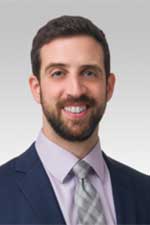
Max Kelsten, MD
MD: Northwestern University
Residency: Northwestern University
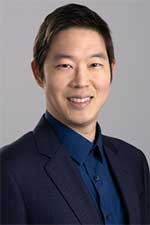
Kyle Miyazaki, MD
MD: University of Hawaii
Residency: University of Hawaii
Third Year
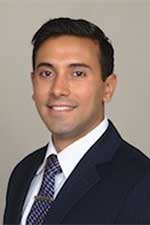
Juan Alban, MD
MD: University of Illinois
Residency: University of Chicago
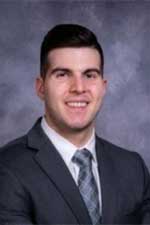
Peter Doukas, MD
MD: Northwestern University
Residency: Northwestern University
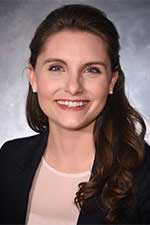
Chelsea Lau, MD
MD: University of Virginia
Residency: University of Virginia
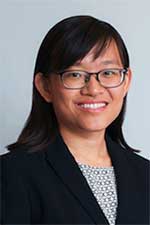
Coyin Oh, MD
MD: Harvard Medical School
Residency: University of California San Francisco
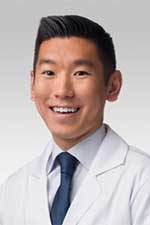
Timothy Oh, MD
MD: Wake Forest University
Residency: Northwestern University

Bhamini Patel, MD
MD: Northeast Ohio Medical University
Residency: Emory University
Fellowship: Emory University - Hospice and Palliative Medicine

Neha Reddy, MD
MD: Northwestern University
Residency: The University of Texas at Austin
Fourth Year
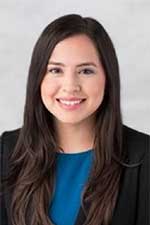
Alejandra Marinelarena, MD, PhD
MD/PhD: University of Illinois College of Medicine
Residency: Northwestern University
Graduates
Class of 2025
Marie Dreyer, MD - Thoracic and Head/Neck Oncologist, Endeavor Health Northshore
Nikita Patel, MD - Oncologist, Sarah Cannon Research Institute
Wafik Sedhom, MD - Assistant Professor, Northwestern University
Alok Swaroop, MD, PhD - Instructor of Medicine, Northwestern University
Surbhi Warrior, MD, MPH - Assistant Professor, Rush University Medical Center
Class of 2024
Brandon Bungo, MD - Assistant Professor, Northwestern University
Megan Melody, MD, MS - Assistant Professor, University of South Florida & Tampa General Cancer Institute
Oluwatobi Odetola, MD - Hematologist, Rogers Marris Cancer Center - Sanford Health
Anthony Serritella, MD - Assistant Professor, University of Wisconsin
Class of 2023
Madelyn Burkart, MD - Assistant Professor, Atrium Health Wake Forest Baptist Hospital
Jacob Choi, MD, PhD - Assistant Professor, Emory University
Sara Small, MD, PhD - Assistant Professor, Fox Chase Cancer Center
Frederique St-Pierre, MD - Hematologist Oncologist, Great River Health (Burlington, Iowa) & Affiliate Professor, University of Iowa
Chetan Vakkalagadda, MD - Assistant Professor, Oregon Health and Science University
Class of 2022
Lauren Chiec, MD - Assistant Professor, Case Western Reserve University
Sarah Fenton, MD, PhD - Assistant Professor, Northwestern University
Carlos Galvez, MD - Assistant Professor, University of Illinois at Chicago
Dhruvika Mukhija, MD - Assistant Professor, University of Minnesota
Yazan Numan, MD - Clinical Assistant Professor, Northwestern Medicine Palos Hospital and Orland Park Cancer Center
Class of 2021
Michael Burns, MD, PhD - Medical Director, Abbvie
Adam Lin, MD, PhD - Assistant Professor, Northwestern University
Alain Mina, MD - Bone and Blood Marrow and Cellular Therapies Fellowship, Stanford University
Michael Schieber, MD, PhD - Clinical Assistant Professor, Northwestern Medicine Lake Forest Hospital
Brian Schulte, MD - Assistant Professor, University of California San Francisco
William Pearse, MD - Assistant Professor, University of California San Diego